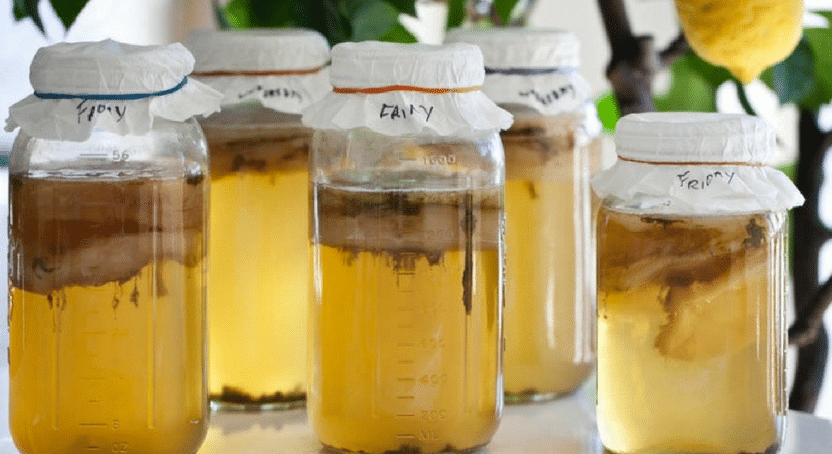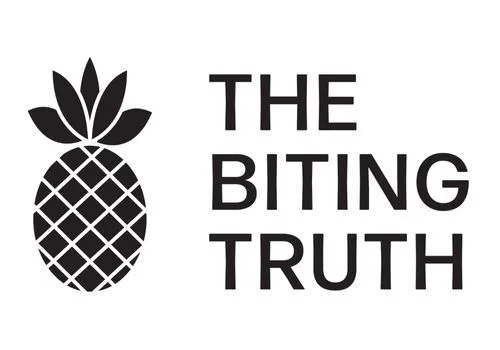
(image from: http://fsi.colostate.edu/kombucha/).
The kombucha craze is coming in hard and fast. We recently spoke to Megan Rossi (The Gut Health Dr) to determine whether kombucha is a legitimate health remedy or yet another food fad.
What is kombucha and why are people worshiping it?!
Kombucha is a fermented tea. It is simply made by combing tea (often a mix of green and black) with a whole heap of bacteria and yeast. The third and final essential ingredient needed to make kombucha is that dreaded ‘s’ word- sugar!
The alleged health benefits associated with kombucha are all encompassing, and range from anti-cancer, anti-inflammatory and even improved libido. But these claims are based on personal observations and testimonials, rather than scientific and research studies. When it comes to kombucha there has been no good quality scientific studies (known as randomised controlled trials). And while harping on about the need for human studies is rather boring, it’s the only way we can fight through all the nonsense we’re constantly bombarded with. In saying that no good quality studies does not mean there are no benefits. It simply means we need to do the studies! On that note, kombucha has been consumed for thousands of years and I’m a believer that our ancestors knew what was up…so let’s take a closer look at each of the three ingredients that make up kombucha.
1. Tea
Different companies use different teas but basically the key components include caffeine and catechins (a group of antioxidants). This means that kombucha typically contains some caffeine and antioxidants (although how the fermentation process affects these is not well understood). Also it’s worth noting that an experimental study (meaning in a test tube not humans) found that the infection fighting properties linked to kombucha were not observed in plain tea, suggesting the health benefits of kombucha are not simply due to the tea.
2. Bacteria and yeast
This is commonly referred to as the SCOBY (which stands Symbiotic Colony of Bacteria and Yeast). Now the crazy thing about this is that each SCOBY contains slightly different types of bacteria (called bacterial strains). Like human’s each bacterial strain should be thought of as an individual in that they possess unique qualities. This is one of the reasons why it’s hard to make generalised statements about the health benefits of kombucha. That is, because different batches contain different bacteria they are likely to have different effects.
3. Sugar
Yes kombucha contains “added sugar”. Although generally speaking we want to limit this, in the case of kombucha it actually serves two vital purposes. First, sucrose, the scientific name for table sugar (made up of glucose + fructose), is needed to keep the SCOBY alive. Second, the SCOBY eats the sugar (through a process known as fermentation), which plays a vital role in producing a range of organic acids, B-vitamins, amino acids and many other health-related bio-active compounds. What’s more the fermentation of the sugar releases carbon dioxide, resulting in that delicious kombucha fizz!
Side tangent: Did you know the process of bacterial and yeast fermentation is where carbonated soft drinks originated from?! Unfortunately today commercial soft drinks are made by directly adding in carbon dioxide to artificially create the bubbles rather than relying on the traditional fermentation methods.
Although a decent amount of sugar is added in the making of Kombucha, typically there is only a small amount left in the final product (the longer you leave it to ferment the less sugar it will contain…although if you leave it too long it will end up tasting like vinegar). Nonetheless, when it comes to commercial kombucha the amount of sugar can vary significantly (some companies add extra sugar to appease our sweet tooth). With this in mind it’s always good to check the nutrition label.
The key take homes
Kombucha isn’t a cure for health, but then again I’m am yet to be convinced that any single food or drink ever will be. In saying that, kombucha has been used as a medicinal drink for centuries and there is some mechanistic support for how it may benefit health.
Take home motto: if you enjoy the taste, it’s not doing any harm (physical or financial) – then why not give it a go?!
_____________________________________
Dr Megan Rossi is a Registered Dietitian and Nutritionist with a PhD in the area of Gut Health. Megan works as a Research Associate at King’s College London and Consultant Dietitian across food industry, media and leads a Gut Health clinic on Harley street in London. Megan has also launched a gut health menu range with Leon Restaurant across the UK and now also available in Netherlands!
To keep updated on the latest gut health news connect with Megan across socials @TheGutHealthDoctor
www.drmeganrossi.com
